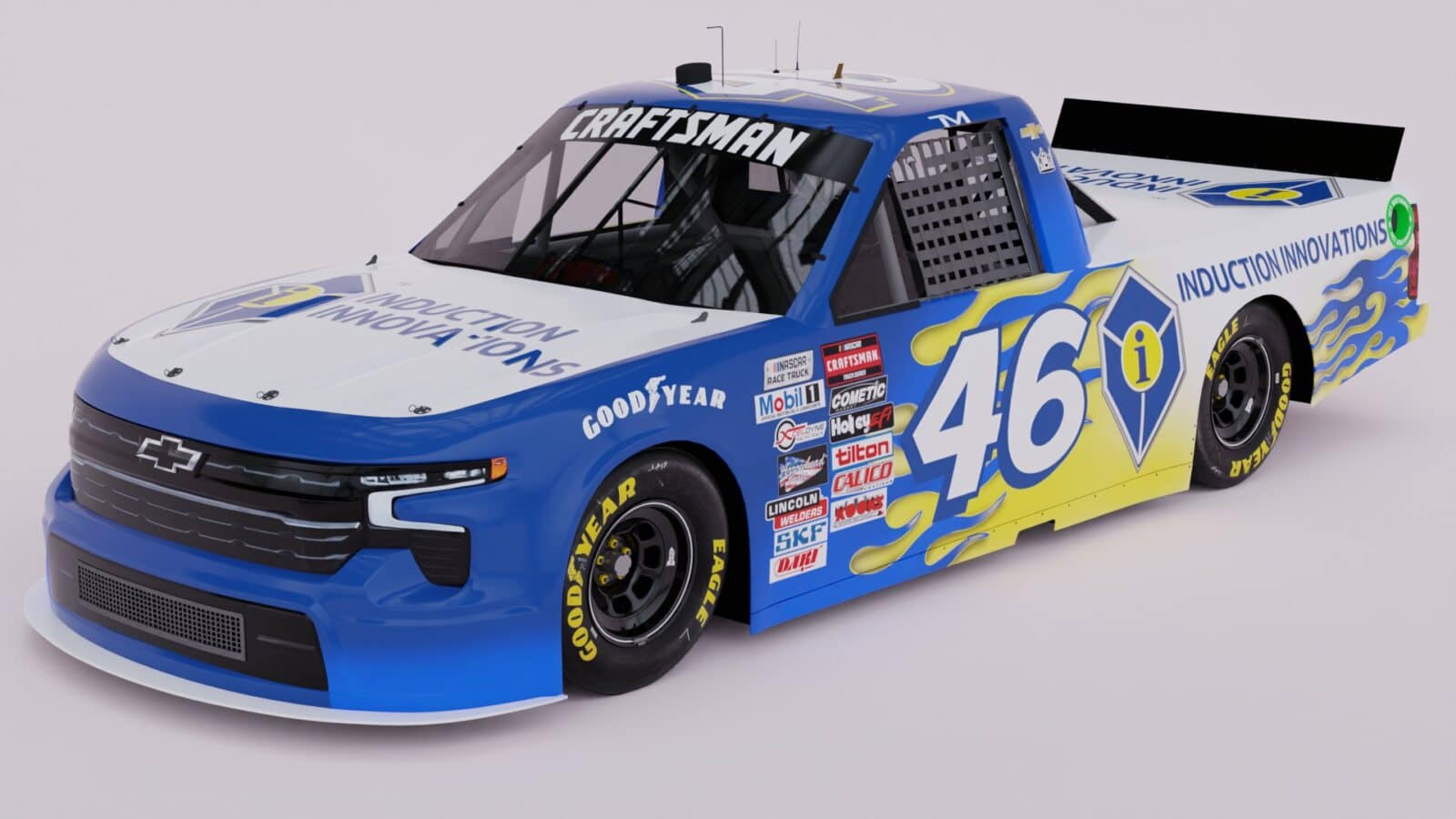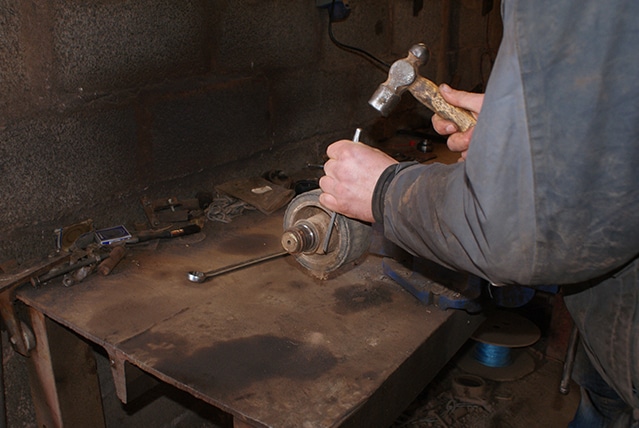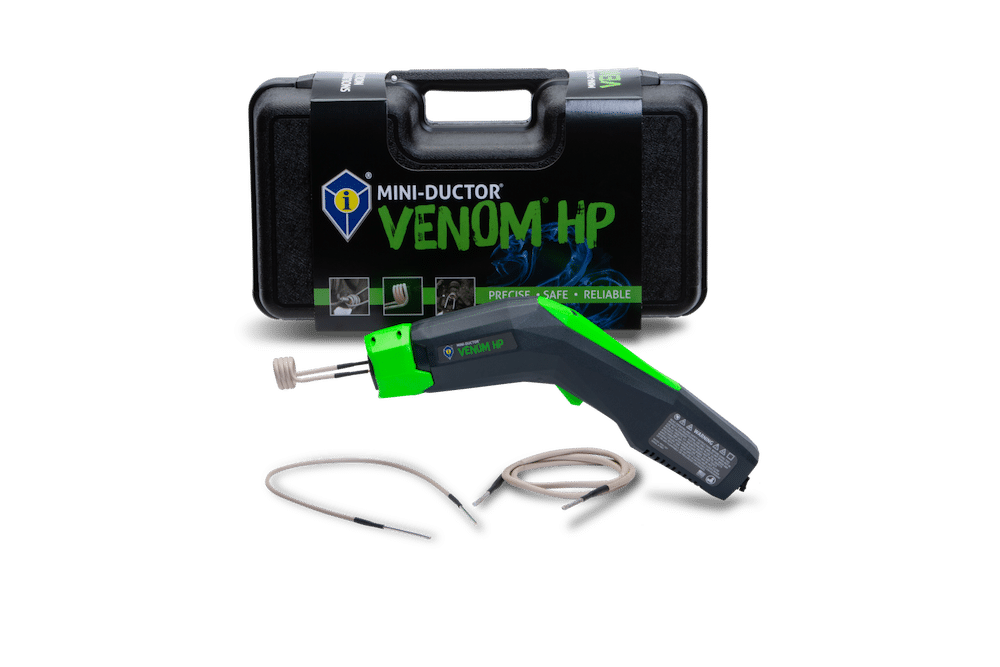H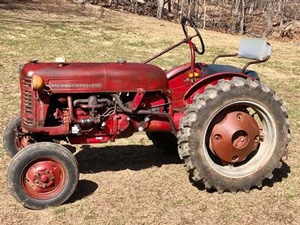 ere at Induction Innovations, we are fortunate to have customers reach out to us and share their successful repair stories. Over the last few months, we have had one particular customer share his progress in restoring an antique tractor using his Mini-Ductor II.
ere at Induction Innovations, we are fortunate to have customers reach out to us and share their successful repair stories. Over the last few months, we have had one particular customer share his progress in restoring an antique tractor using his Mini-Ductor II.
History of the Farmall Cub Tractor
The antique tractor our customer is repairing is a 1955 Farmall Cub Lo-Boy. It was purchased by our customer, Art, in December of last year. He says the serial number is in the first 500 models ever made (dating it to 1955).
A little brief history of the Cub Lo-Boy, according to TractorData.com, The Farmall Cub Lo-Boy was manufactured by International Harvester in Louisville, Kentucky. It is a utility tractor, similar to the standard Cub. The Lo-Boy is about 8 inches shorter than the standard Cub; both have the International Harvester “Cultivision” offset engine and steering.
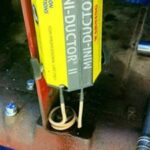 First Project: Mini-Ductor II Busts Bolts Corroded with Battery Acid
First Project: Mini-Ductor II Busts Bolts Corroded with Battery Acid
The first project Art worked on, using the Mini-Ductor II, was on several bolts that corroded in place due to leaking battery acid years ago. The corrosion made it difficult for him to remove those bolts, especially the bolts in the battery box.
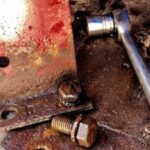 He took his Mini-Ductor II to the bracket bolts; they were glowing and loosened right up in less than 20 seconds. Art also mentioned he used a mixture of 50/50 ATF/Acetone as a lubricant.
He took his Mini-Ductor II to the bracket bolts; they were glowing and loosened right up in less than 20 seconds. Art also mentioned he used a mixture of 50/50 ATF/Acetone as a lubricant.
The bolts came loose with no damage to them or the threaded cast iron.
Weathered Bolt Removal on the Grader/Plow
The tractor came with a grader plow attached to it. Since this equipment is from 1955, the grader is in rough shape due to weather, elements, and minimal maintenance. It needed some welding in a few spots to get it restored to a working condition. Art planned to take it apart to do the work.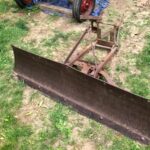
Removing the rusted bolts from the plow proved to be a challenging task. Penetrant oil did not help to loosen the bolts. That left the choice of either cutting the bolts or using the Mini-Ductor II.
He took the Mini-Ductor to the bolts for 30 seconds each. And what do you know? The corroded nuts unscrewed easily! See pictures for more.
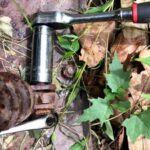
Induction Heat vs. Torch
I had asked Art if he already owned a Mini-Ductor and just happened to use it for this purpose. He said he bought it specifically to fix up the tractor!
Art mentioned that using a torch, in this case, would not work for him for a couple of reasons. First, the battery acid had leaked through the battery box. So, he could not access the bolts inside with a torch, let alone a socket to grip them. The Mini-Ductor was the only option!
It is also a much safer way of getting these rusted, corroded, and weathered bolts loose. If Art is near any dry materials, a torch is risky to use. The Mini-Ductor produces a localized, reliable heat source that only heats what is within the coil and no surrounding areas.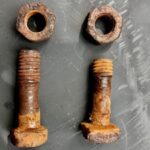
Read more about how induction heat is safer than a torch here. Also, see Induction Heat for Agriculture.
Next Up for Lola
Art says Lola, as he refers to his tractor, is a fun project for him. Even though he is digging through years of hard use and only so-so maintenance, he enjoys the repair process.
The next project for Lola and the Mini-Ductor is to take off the manifold to get at the valve cover. He hopes that no major engine work is hiding under there. Good luck, Art!
Contact Us
To learn more about induction heat or to tell us your restoration story, reach out to us via phone at 877-688-9633 or email at [email protected].
Follow or Contact us on Social Media: Facebook • Instagram • LinkedIn • Twitter • YouTube
Contact Us to Learn More About Induction Heat for Agriculture
